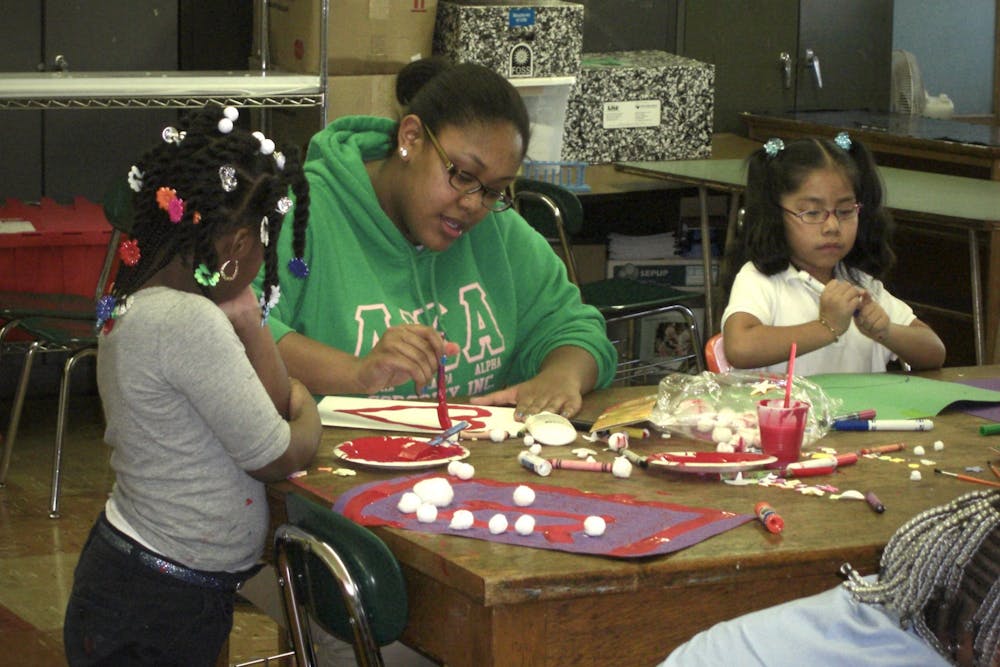Budget cuts and safety concerns in the West Philadelphia school system spell disaster for low-income students and families. Schools reopening for the fall semester is a central concern amid accelerating COVID-19 infections. The Trump administration is urging schools to reopen, and threatening to withhold funding from districts that do not resume in-person classes. Considering that for years, Philadelphia schools have been unable to adequately clean classrooms, the idea that they can protect students from COVID-19 seems naive.
Shortages of toilet paper, soap, and hot water are commonplace in Philadelphia school buildings, and classrooms cannot even afford to keep an adequate supply of basic cleaning supplies. Administrators are faced with a critical choice — send students and staff into an unsafe learning environment or risk losing desperately needed federal funding. However, a far more insidious health hazard has troubled the school system for decades: asbestos.
Asbestos is a silicone mineral widely used as an insulator until it was banned in 1970 for emitting toxic fibers. Half a century later, predominantly Black and Brown public schools are still plagued by the harmful carcinogen. Officials report that over 80% of schools in the district still contain asbestos. Despite the fact that a known cancerous toxin continues to endanger the health of Philadelphia's students and faculty, the district’s menial education budget stifles reform efforts. The persistent asbestos crisis in Philadelphia-area schools caused ten schools to close temporarily this year, and lawsuits are costing the city hundreds of thousands of dollars in settlements.
The president of the Commonwealth Association of School Administrators, Robin Cooper, sheds light on the dire nature of the situation at hand. Though educators fully understand the value of in-person instruction, the district does not have the resources to protect students to any degree. She highlights that the “choice administrators face is between a potential gap in learning and a child’s death.” As COVID-19 infection numbers continue to climb, a safe reopening is not possible. The district should begin preparation for an entirely remote model so that children can receive a well-organized online learning experience.
Cooper also emphasized the importance of collaboration with the community as a whole. “More can be done for the students of Philadelphia. If there are other entities like the University of Pennsylvania that can support our school district, we need it.”
In mid-July, district leaders attempted to reconcile both options through a two-day in-person and three-day remote reopening plan. They “pledged” to keep students safe during the fall semester, however, they did not release a comprehensive plan on how this would be accomplished. As the education sector reels from the financial crisis and decades of divestment, implementing adequate safety precautions is unfathomable. Fear and anxiety have overwhelmed Philadelphia students and families, and there is a public outcry for completely remote instruction. Ultimately, without a drastic increase in public school budgets, the predominantly Black and Brown student body that surrounds Penn’s campus will be denied a safe, let alone a quality, education.
When called upon to pay PILOTs, Penn highlights the vast reach of our civic engagement programs. During my freshman year, I worked in West Philadelphia High School as a science teacher through the Netter Center, and while volunteer efforts are indisputably beneficial, fundamental issues with the education system urgently need to be addressed. An asbestos-laden school without toilet paper, soap, and hot water does not need weekly university volunteers. They need fiscal support. Community service should not be leveraged to discredit the urgent need for PILOTs.
The fall is rapidly approaching, and while Penn is grappling with how to safely bring its own students back to campus, it is crucial to not leave behind our local community members. Immediate PILOTs will not help Philadelphia flourish, but merely allow it to survive. Penn is the seventh wealthiest university in the nation, and yet parents mere blocks away are being forced to deny their children an education because of unsafe school conditions. Penn is inextricably linked to the community around us, and we must do more to protect our neighbors’ basic rights to education, safety, and health.
SEE MORE FROM MORGAN GILFOND:
First the virus, now the protests. Black-owned businesses are hurting.

MORGAN GILFOND is a rising College sophomore from New York City studying Economics. Her email address is mgilfond@sas.upenn.edu.
Have opinions of your own you would like to share? Submit a guest column.









